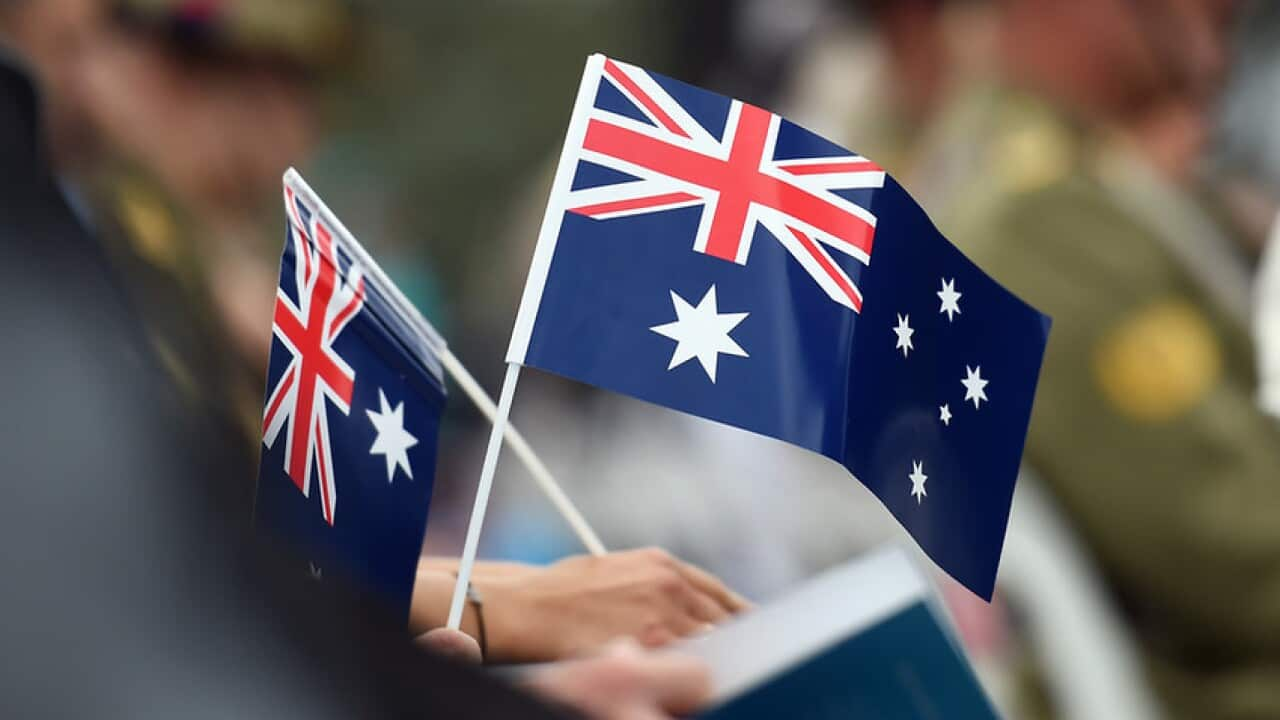The Aboriginal people of the Eora nation weren’t invited to that first party in 1788 because, by definition, they didn’t exist. The penal settlement, established in New Holland, under the concept of terra nullius decreed they were non-people with no place, no voice.
The jailers didn’t describe themselves as Australian, it too didn’t exist and they were British waiting to end their miserable term in the colony and return to the warm bosom of the mother country.
This bizarre conjunction of circumstance is the basis of our national day.
Up until 1994, Australia Day was not celebrated on the actual anniversary, January 26. Before that, it was a fairly benign Australia Day weekend set closest to the date, but that changed with the culture wars begun under Prime Minister John Howard.
ANZAC and Australia Days were two key battlefields in Howard’s campaign to make the white armband view of history supreme. But ANZAC Day is almost lost to the politically correct. Who knew so many Aboriginal and Torres Strait Islanders fought with distinction in all of this country’s colonial wars only to return and face racism and discrimination? Is the recognition of the Frontier Wars closer than we think?
But ANZAC Day is almost lost to the politically correct. Who knew so many Aboriginal and Torres Strait Islanders fought with distinction in all of this country’s colonial wars only to return and face racism and discrimination? Is the recognition of the Frontier Wars closer than we think?

Aboriginal protests on Sydney Harbour on Australia Day celebrations, 1988 Source: Wordpress
Now, many on the right see Australia Day as the last cultural bulwark against Indigenous inclusion in society. Mark Latham a former Labor leader and conservative pundit said in his Save Australia Day video, “this is a big one. If the left wing activists are able to move Australia Day away from the 26th of January they can change anything about our country… if Australia Day falls the left will be out of control”.
John Howard understood how important Australia Day was to succeed in the culture wars. It was an annual minefield to traverse with every explosion a reminder that First Australians were non-people who had no place, no voice.
It was a sentiment reinforced last year with Prime Minister Malcolm Turnbull’s abrupt rejection of the Uluru Statement from the Heart and its proposal for a constitutionally enshrined voice to parliament. You have no voice, you have no place and you are non-people.
Prime Minister Howard not only fought the white armband war at a cultural level, he was prepared to take radical action.
In 1997, a year into his premiership, he did his best to undermine the Wik land rights legislation (you have no place) and refused to apologise to the Stolen Generations. (You are non-people).
As John Howard said, "I don't think it is wrong, racist, immoral or anything, for a country to say 'we will decide what the cultural identity and the cultural destiny of this country will be and nobody else."
In 2004 he moved to abolish the national, democratically elected representative body, the Aboriginal and Torres Strait Islander Commission, ATSIC (you have no voice).
In 2007, he sent troops into the Northern Territory as part of the Intervention ( you have no safe place, you have no voice and you are non-people).
I suspect his attitudes may have been informed by the Howard family’s years as plantation owners in Australia’s only colony, Papua New Guinea.
Expecting Indigenous people to celebrate Australia Day is a bit like asking the Palestinians to go crazy over the founding of Israel. The parallels are astounding…
“A land without a people for a people without a land”, was a common rallying cry for Jewish people looking to establish a Jewish homeland in Palestine at the end of the nineteenth and the beginning of the 20th century. It was terra nullius by the Mediterranean. Needless to say, Palestinian Arab citizens mark Israeli Independence Day with marches and protests, for them, it’s Nakba Day, the day of catastrophe.
In Israel commemorating Nakba Day can be an offence subject to time in prison or a fine.
In Australia, the government has not gone that far but the Coalition has come down heavily on Councils which have voted not the celebrate Australia Day on the 26th of January and criticised those who would change the date as “ un-Australian”.
Interestingly, in the 1930s there was a serious proposal put to the WA state and federal governments to establish the State of Israel in the Kimberley. As far as I can tell, nobody asked the First Australians what they thought.
National days are neither fixed nor final. Germany no longer celebrates Hitler’s birthday but commemorates the reunification of East and West on the Day of German Unity.
Great Britain has no national day domestically preferring to celebrate the national days of its component parts and Indigenous peoples. St Andrews Day for the Scots, St Patricks for the Northern Irish, St David’s for the Welsh and St George’s Day for the English.
Canada celebrates the day in 1867 when its three separate colonies unified to form the Dominion of Canada within the British Empire. Not much of an improvement compared to Australia Day, but the Canadians at least have National Indigenous Peoples Day.
And finally, God defend New Zealand, yet again the gold standard of national celebrations.
Waitangi Day named after the Bay of Islands town where the treaty with its First Nations’ Peoples was first signed.
Malcolm Turnbull could solve the problem forever by signing a treaty with Indigenous Australians on January 26th.





